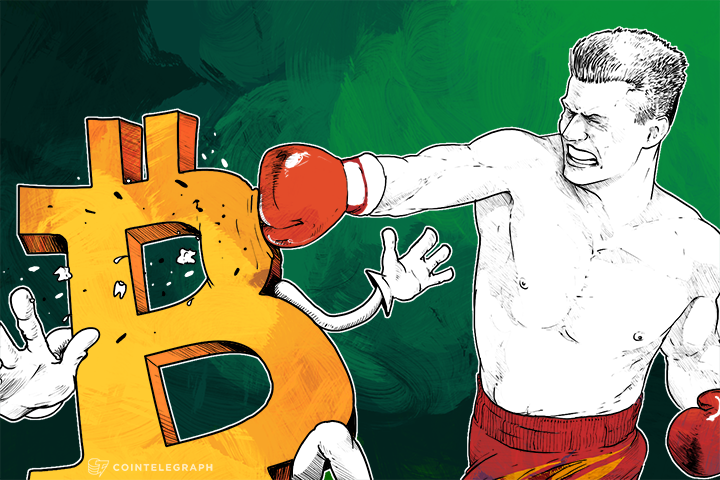The proposed law to ban Bitcoin in Russia is expected to be passed in August of this year, as a crypto-legal expert recommends businesses “get out of Russian jurisdiction.”
Bitcoin ban
With the Bitcoin Conference Russia currently underway in Moscow, more details about the controversial proposal to ban cryptocurrency in Russia have emerged with the likelihood of the law being passed in August of this year.
Moreover, Artem Tolkachev, a managing partner from the legal firm Tolkachev and Partners, presented the estimated fines that could be expected for using, distributing (including information) and creating “money surrogates” i.e. cryptocurrencies on Russian territory.

As expected, the distribution of bitcoins or other cryptocurrencies will incur a penalty from 5,000 to 20,000 thousand rubles for individuals, an amount which was lowered from the initially proposed figure, and 50,000 to 1 million rubles for businesses.
Tolkachev also explained that individuals should not be worried since there will be “no controlled purchases.” However, he recommended to “get out of Russian jurisdiction” for businesses and companies involved with cryptocurrency.
It also became apparent that the government will grant Roskomnadzor, Russia’s Federal Supervision Agency for Information Technologies and Communications, all powers to blacklist and block related information sources and websites without legal action, according a representative of the Russian Pirate Party, Artem Kozlyuk. It should be noted that Roskomnadzor has already blocked at least 7 crypto-related websites back in January, a move that one of the affected resources, Btcsec, vowed to fight in court.
Meanwhile, the Deputy Chairman of the Central Bank of Russia has taken a much warmer stance compared to his colleague-officials and considers a ban on cryptocurrencies to be unnecessary, preferring a smarter approach towards regulation.
Other participants at the event also expressed their views on the looming law. “The ban will strip law-abiding users and companies the ability to use bitcoin while criminals will continue to use it as usual,” said Evgeniy Sivkov, CEO of FBKA. “We will be out-competed on the world stage by other countries.”
Sivkov added:
“Our government does not view bitcoin as a currency. The US, for example, considers bitcoin to be either just a currency or just an asset. While in Singapore, bitcoin is even a service. The countries which have banned bitcoin are Bangladesh, Vietnam, and Iceland. Welcome to the Club!”
The law to ban Bitcoin is expected to go into effect in August 2015. In the meantime, you can follow the live coverage of the event here (in Russian).


